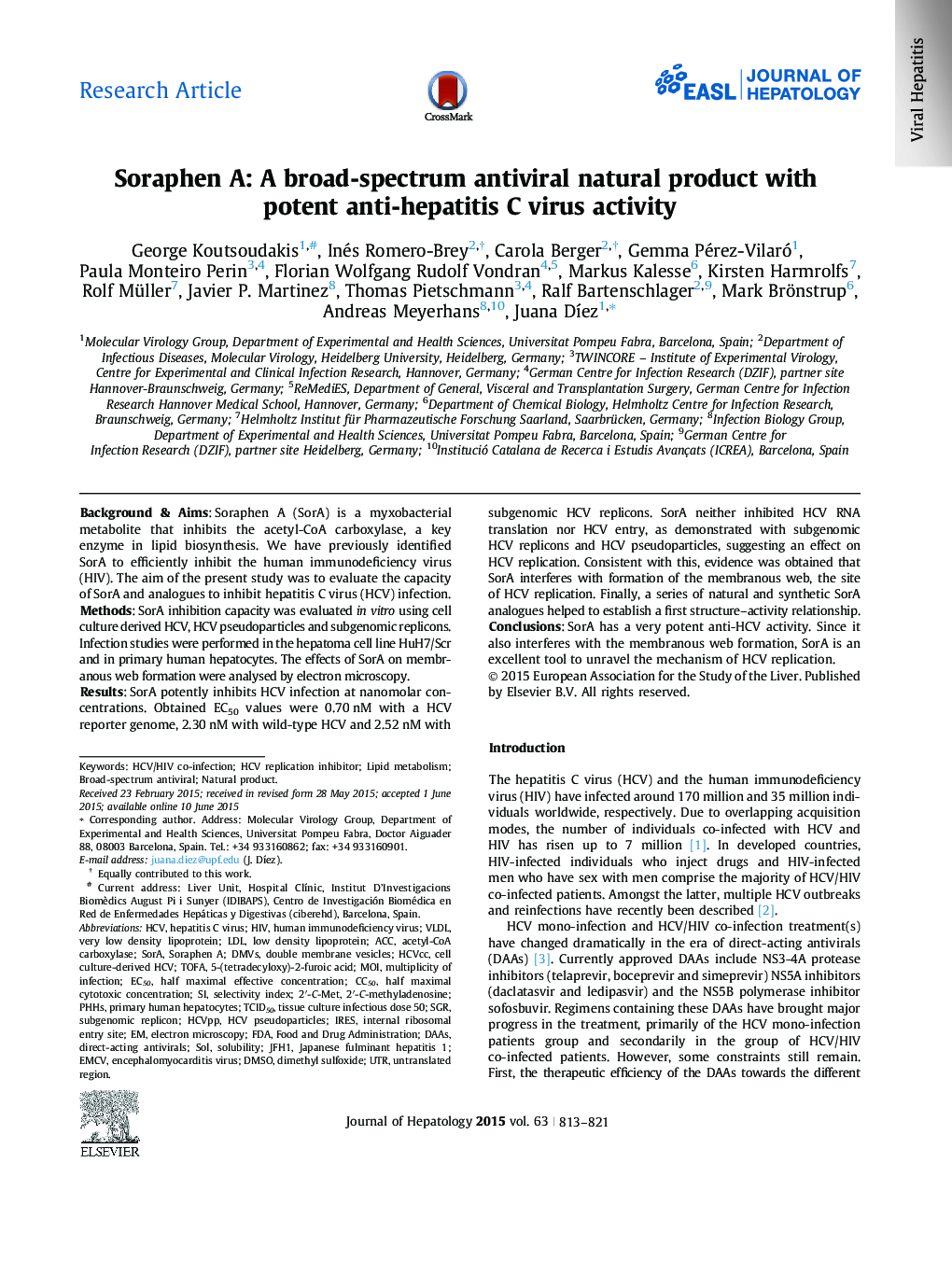| Article ID | Journal | Published Year | Pages | File Type |
|---|---|---|---|---|
| 6102799 | Journal of Hepatology | 2015 | 9 Pages |
Background & AimsSoraphen A (SorA) is a myxobacterial metabolite that inhibits the acetyl-CoA carboxylase, a key enzyme in lipid biosynthesis. We have previously identified SorA to efficiently inhibit the human immunodeficiency virus (HIV). The aim of the present study was to evaluate the capacity of SorA and analogues to inhibit hepatitis C virus (HCV) infection.MethodsSorA inhibition capacity was evaluated in vitro using cell culture derived HCV, HCV pseudoparticles and subgenomic replicons. Infection studies were performed in the hepatoma cell line HuH7/Scr and in primary human hepatocytes. The effects of SorA on membranous web formation were analysed by electron microscopy.ResultsSorA potently inhibits HCV infection at nanomolar concentrations. Obtained EC50 values were 0.70Â nM with a HCV reporter genome, 2.30Â nM with wild-type HCV and 2.52Â nM with subgenomic HCV replicons. SorA neither inhibited HCV RNA translation nor HCV entry, as demonstrated with subgenomic HCV replicons and HCV pseudoparticles, suggesting an effect on HCV replication. Consistent with this, evidence was obtained that SorA interferes with formation of the membranous web, the site of HCV replication. Finally, a series of natural and synthetic SorA analogues helped to establish a first structure-activity relationship.ConclusionsSorA has a very potent anti-HCV activity. Since it also interferes with the membranous web formation, SorA is an excellent tool to unravel the mechanism of HCV replication.
Graphical abstractDownload high-res image (187KB)Download full-size image
